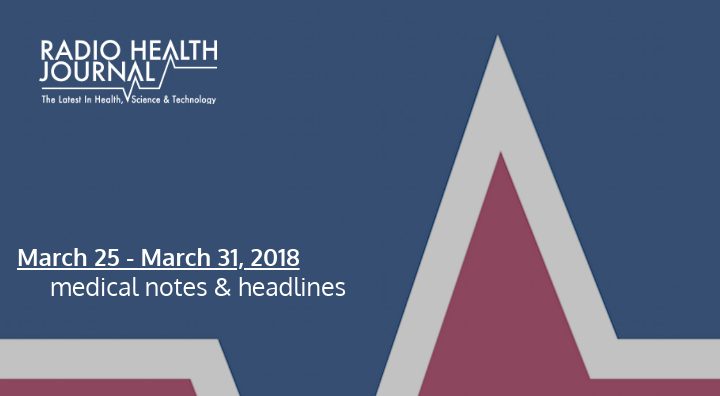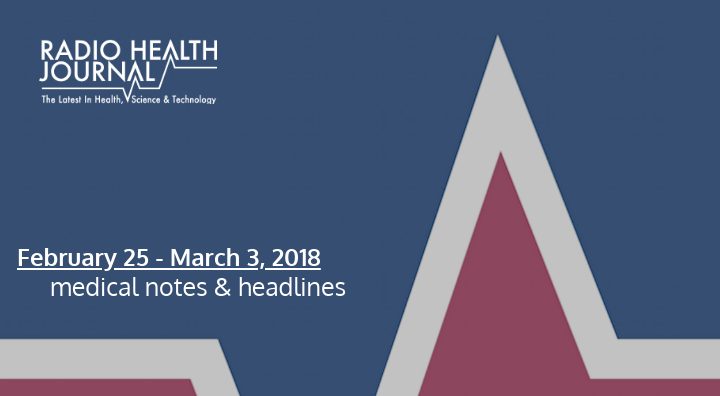Medical Notes: Week of April 22, 2018
Using pot to combat the opioid epidemic, therapy dogs in the ICU, and how losing your life savings could cost you your life.


Using pot to combat the opioid epidemic, therapy dogs in the ICU, and how losing your life savings could cost you your life.

How cancer impacts the rest of a person's life, a new treatment for urinary tract infections, and the connection between lowering stress levels and your sweetheart's t-shirt.

Dr. Meredith Wadman discusses the controversial history of vaccines, and the balance of need and ethics in science and medicine.

How PFCs affect weight gain, women are more likely to bully other women, and what is more important for longevity exercise or the occasional drink?

Lung diseases such as COPD are difficult to treat, but a new method taking a patient’s own stem cells, concentrating them, and reinfusing them is showing success. An expert explains.

A look at the top medical headlines for the week of March 25, 2018.

Studies show that a large proportion of college students are at least occasionally “drunkorexic,” avoiding food when they know they’ll be drinking later in order to get a better buzz or to keep from gaining weight.

A new test for the BRCA1 and BRCA2 genes, treatment for colicky babies, and the long-term effect of letting kids under age twelve try alcohol.

Hope for a new, faster anti-flu drug, a study shows that food poisoning is often the culprit behind the 24-hour stomach flu, and research revealing short people are less likely to develop blood clots.

New research has several findings about stuttering including a structural deficiency in the brain's wiring, an inability to perceive rhythms, and a successful way to treat stuttering.

A familiar tool in the fight against melanoma, proof we can tell if people are sick by looking at them, an unexpected benefit of going to church, and research on why women avoid certain majors.

Why the ozone layer is recovering, slowing the natural aging of your lungs by eating fresh tomatoes and apples, and at what age spending habits form.
Subscribe to get the latest from Radio Health Journal directly in your inbox.

